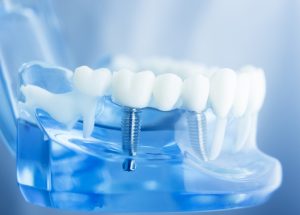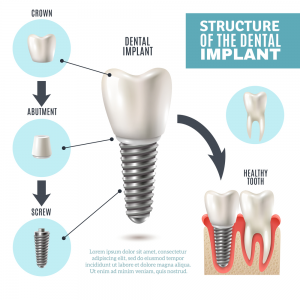Dental implant
Dental implant In Iran
Best dental implant clinic in Iran
 More than 35.000 Iranian and foreign patients are going under the dental implant surgery in Iran each year. dental implant clinic in Iran is on top of the middle-east regarding its skilled specialists and surgeons. Here are the best clinics for a dental implant in Iran:
More than 35.000 Iranian and foreign patients are going under the dental implant surgery in Iran each year. dental implant clinic in Iran is on top of the middle-east regarding its skilled specialists and surgeons. Here are the best clinics for a dental implant in Iran:
- Peris clinic
Dental implant cost in Iran
There is a significant difference between the cost of a dental implant in Iran and other countries. The most important factors for low price of it in Iran are:
- A large number of dental implant clinic in Iran
- A large number of applicants for a dental implant in Iran
Dental implant surgery cost in Iran varies depending on the dental implant and the clinic. An average cost of dental implant in Iran is $81,100.
Dental implant cost in Iran in comparison with other countries
This surgery costs $5.500 in the U.S., $2.250 in Germany, $1.000 in Thailand and $1100 in Turkey.
Best dental implant surgeon in Iran
More than 70.000 dental surgeries are being performed each year in Iran. Experienced Iranian doctors with an excellent record are performing the operations. One of the most important factor for choosing a good surgeon for dental implant in Iran is doctor has done many dental implant.
You can find the best doctors for dental implant in Iran in our website by following their different experiences and before- after gallery.
Why should you travel to Iran for a dental implant?
Many patients travel to Iran for dental implant. One of the reasons for this matter is Iranian specialists and surgeons who have high surgery success rates.
- Low cost of dental implant in Iran
- Low cost of accommodation in Iran
- Well experienced doctors
- High number of dental implant in Iran
Dental implant centres accordant with today's European standards are performing the highest quality operations in Iran. Another reason for dental implant in Iran is its lower cost compared to other countries.
How long should I stay for dental implant in Iran?
About Dental implant
 A dental implant is a type of titanium base compatible with body cells from implants Dental as a suitable and permanent replacement for one or more missing teeth Used.
A dental implant is a type of titanium base compatible with body cells from implants Dental as a suitable and permanent replacement for one or more missing teeth Used.
After the implant is inserted by the dentist into the jawbone, with osteogenesis Bone marrow cells at the implant surface, the jawbone attaches to the implant. The healing process usually takes 3 to 4 months, then the crown and tooth part built and mounted on a stand.
Recommended for
- Patients who have healthy gums
- Patients who have enough bone to hold the implant in your jaw
- Patients who have lost their jawbones can also use dental implants, but first, it is necessary to repair lost bone by using appropriate therapies
Before Dental implant
- Discontinue blood thinners such as aspirin three to five days before implantation
- Eat strong painkillers one hour before surgery
- Chlorhexidine rinsing three days before implant implantation
- Complete rest the night before surgery
- Use proper nutrition before surgery
- Use appropriate antibiotic drugs before treatment if needed
During Dental implant
 Anaesthesia
Anaesthesia
The patient is given topical anaesthesia while implanting the tooth.
Duration
It is essentially a three-phase process that can be used differently for any individuals. The first stage can range from tooth extraction to bone grafting (if necessary). CT scan is performed, and the implant specialist evaluates the bone structure at the tooth implant. If bone grafting is not required, this step takes 3 to 6 months, and if there is a need for grafting, we can go to stage 2.
In stage two, the main base of the implant is inserted into the bone and allowed to recover. This action itself takes 2 hours, and the recovery time is 3 to 6 months.
In the third stage, an artificial tooth or crown is placed on the main base of the implant that was previously in your jaw. An image is made of your mouth, and your new tooth or teeth are somehow created together to be the right size, shape and colour for your mouth. There is approx. 2 weeks between these two steps.
Recovery
Post-operative care
- Avoid brushing around the area for one day after implant implantation.
- Washing mouth for 8 hours after surgery is not recommended.
- It is best to use mouthwash the day after surgery, and the best solution for washing Chlorhexidine solution mouth is three times a day and then once a day. However, Rinse with normal saline several times daily until sutures are removed.
- Swallow your mouth water and do not drain it out. Sucking and spitting causes exacerbation Bleeding.
- Ice compresses are recommended after surgery to reduce swelling. Leave Ice for 10 minutes and then rest the tissue for 5 minutes.
- The best way to control bleeding is pressing surgical area by a small, damp sterile gauze piece with serum for 2 hours.
- Drinking after surgery is possible and cold, and energic fluids are recommended for the first 24 hours. However, for eating, you should be careful numbness has been gone and also be cautious that chewing may cause bleeding and damaging surgical area. So it is best to avoid eating for 14 hours.
Possible discomforts
- Bruising and numbness
- Inflation
- Bleeding
- the pain
- Infection
Highlights
Not recommended for
- Very young people whose jaws have not grown enough
- Women who are pregnant
- Patients with radiation therapy to the head and neck area
- Patients with chronic diseases such as hypertension, diabetes, haemophilia and connective tissue diseases
- Patients who take certain medications, such as steroids and cortisone.
- Patients who have tooth decay. Because they are more likely to break their implant
Possible risks
- Infection at the implant site
- Micro-implant placement
- Insufficient bone density
- Allergic reactions
FAQ
Is fever normal after a dental implant?
Some patients develop a fever after oral surgery. There is no worry about mild fever but if the temperature is increased and not decreased, contact your doctor. In most oral medicines to help heal, use sutures for tissue use. Most stitches used in these surgeries take three to five days to fall for themselves. Some seams may also require longer to absorption or pulling them.
Are sutures used in implant implantation?
In most oral surgeries to help heal, use stitches for tissue use. Most sutures used in these surgeries take three to five days to fall for themselves. Some seams may also require longer to absorption or pulling them.
Does the dental implant become crumpled like a regular tooth?
Yes, the implant also gets stuffy. Tooth masses and eyelids are one of the most important causes of tooth decay and dental implants. At periodic checkups, the dentist examines the implant in this regard as well.
